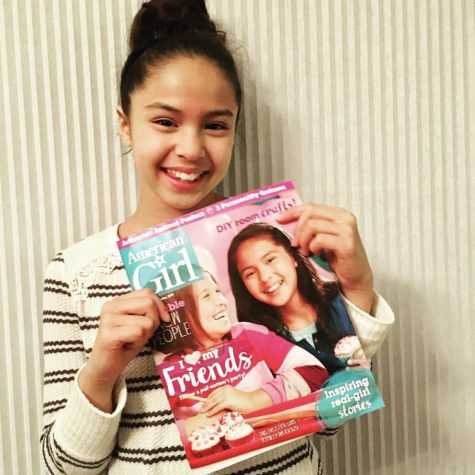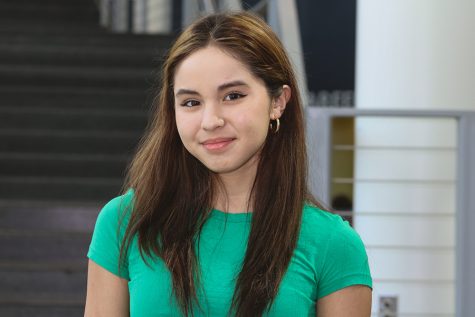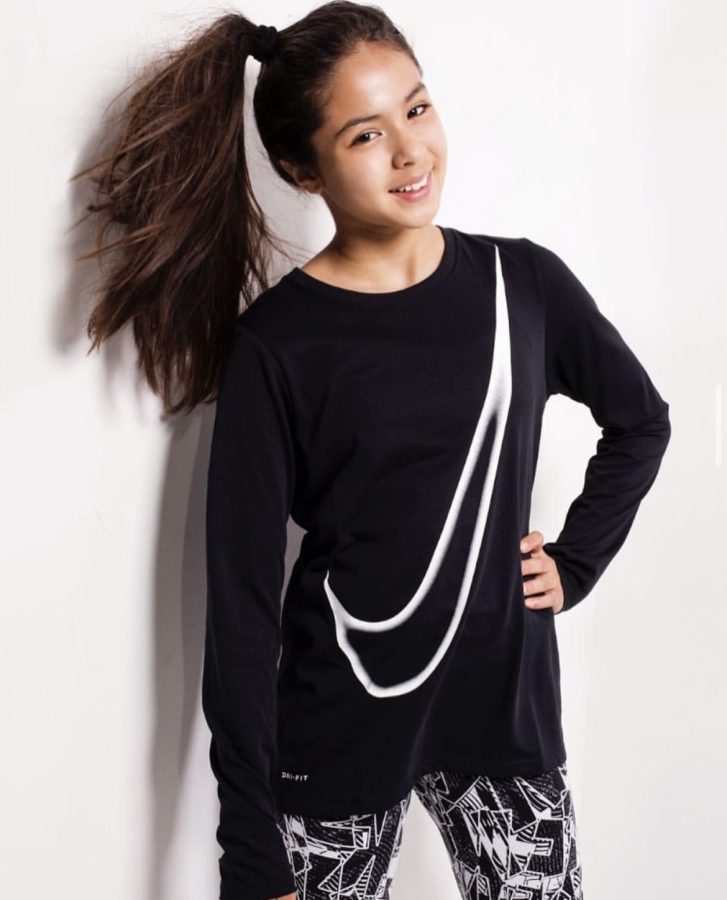A glimpse behind the scene: My experience working in the entertainment industry
Modeling often requires a person to work effectively, efficiently and creatively to get the perfect shot.
A part of me has always wished I could rewrite my narrative to give me a chance at a different kind of childhood, where I didn’t have to grow up so fast. Despite these wandering thoughts inside my head, I don’t think I would change anything.
Starting at the age of nine years old, I became a professional actress/model. While the title holds the entitlement of a life most would think of being glamorous, it was far from these preconceptions.
One of the first things that people ask me when I tell them this part of myself is, “So, how did you even get started?” Setting foot in this type of industry can come in various ways; for me, I started through a program called AMTC (Actors, Models and Talent for Christ.)
My mom and I used to always see billboards advertising for this program and joke about how this seemed like something I would be good at, and, from a casual conversation, I would now be signing the paperwork for the program. I ended up mindlessly making a decision that would change and shape my experiences and the person I have become today.
If you are unfamiliar with AMTC, it consisted of a series of workshops and seminars in Orlando that taught you different skills and information within the industry. I attended workshops such as cold read, improv, on-camera modeling and many more. The environment was filled with people of all ages ranging from children to older adults who all held the same goal – to be famous – but I never felt the same way as my peers around me.
After going through training, we were all finally ready to perform the showcases of various events in front of a panel of agents worldwide. This was a big deal; at just nine years old, I felt I was in a situation way out of my head. But something inside me, a voice born that day, forced me to go ahead as if there was no other option.
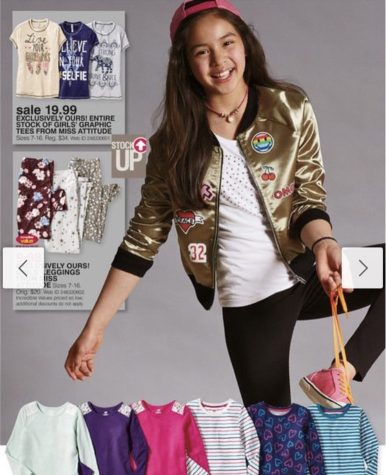
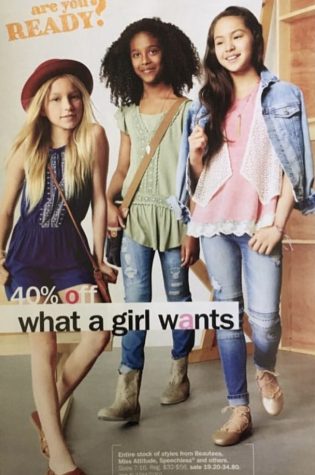
After performing, I got requests to meet with agents for an interview. It was surreal, anxiety-provoking and yet one of my most enriching opportunities. After this process, I ended up signing up with Lily’s Talent Agency in Chicago to join their company.
I was now the only 9-year-old at my elementary school with a work permit and a resume. I was constantly pulled out of my classes and missed school to attend castings or show up for shoots.
It was an endless cycle, but it also taught me how to work with others, communicate with adults and be highly self-disciplined. Outside of castings or jobs, I was allowed to be myself and immerse in what it meant to be a kid, but as soon as I had a job, an automatic switch fired off within my brain.
I remember very vividly waking up at 5 a.m. in the morning, driving to Wisconsin to shoot for companies like Kohl’s or American Girl, then returning to my school to attend the rest of the day.
I would be lying if I didn’t say that it was exhausting, because it was, but it also gave me an opportunity that, at the time, I didn’t realize the privilege of having. I was living the dream of so many young girls around me, so I wasn’t going to take this for granted. I wanted to embrace the process, the fallback, the successes and everything else in between.
One of the more difficult parts I faced wasn’t keeping up with school, which is what most people would assume – it was keeping hold of friends. A lot of people around me, mainly peers, didn’t understand what I was doing and began seeing me through a different light, and while I was the same person, to them, it was as if everything about me had changed.
I was always warned that this was an inevitable part of this experience. And while these words lived endlessly in my mind, I never expected them to happen, and when they did, I didn’t know what to do or how to feel.
Coming back from shoots, I felt as if I needed to lie about where I was to avoid any tension between my friends. Was this fair? No. But I had to get over it because this would become my life for the years to come, and I wasn’t going to let anyone take it away from me.
Another big question that I get asked is how shoots go. While each specific company is different, most run very similarly; when you arrive, you are taken into a large studio, almost like a warehouse, with multiple sets around you. After walking past all the arrays of lights, you’ll be taken to the area where they prepare their models.
I would first go through hair and makeup, which was always one of my favorite parts of the process because the artists were always nice and loved to engage in conversation. After going through hair and makeup, I would be given the clothing I would have to model for the day.
My favorite place for wardrobe was Carson Pirie Scott because instead of a small rack in the dressing room, I got to see the entire warehouse of clothes. Imagine walking into Costco, but instead of food, it was filled with thousands and thousands of clothes and shoes.
After I was set to go, it was time to take some photographs. Modeling for print is different than most people would expect. Each movement must be very subtle, and you want to change what you are constantly doing and your facial expression. Simple things like pretending to walk, jump or just barely swaying left and right is exactly what they look for.
In the beginning, it would take me around five minutes for the photographer to get their perfect shot, but as I became more experienced, I was done in less than a minute and onto the next outfit.
In this industry, people have no time to lose, so everything must be done fast and precisely, and as they used to say, “everyone is always replaceable.” Although the words may sound harsh, you wouldn’t be able to be in the industry if you didn’t have thick skin to handle words like those or face rejection over rejection when it comes to castings.
This part was bittersweet. I faced a lot more rejection than anything else. While in my career, I’ve had opportunities to work for companies like Kohl’s, American Girl, Carson Pirie Scott, Nintendo and many others, but more often than not, I didn’t get the job.
At times it left me questioning if it was something that I had done wrong, but ultimately it could have been things that I couldn’t change about myself.
In modeling, the industry will often go through cycles in what they consider the desirable look. Being ethnically ambiguous at the time that I was pursuing this career was considered popular; you could even go as far as saying “desirable.”
Like fashion trends, a person’s ethnicity often follows a similar pattern: your look could go from being super popular to companies to not receiving bookings for months. Considering something so defiant on your identity as a trend is a usual predicament, but one that has become a norm for models.
The last question I typically get is, “so why did you quit?” This has always been a challenging question for me to answer for others and, at times, for myself.
While most people see models as the “beauty standard” and compare themselves to the people they see in catalogs, from the model’s perspective, it’s exhausting and self-deprecating to fit into the standards society expects them to fulfill, especially when you lack confidence. As I got older, I started seeing this more and more, forming a toxic relationship between myself and my body image.
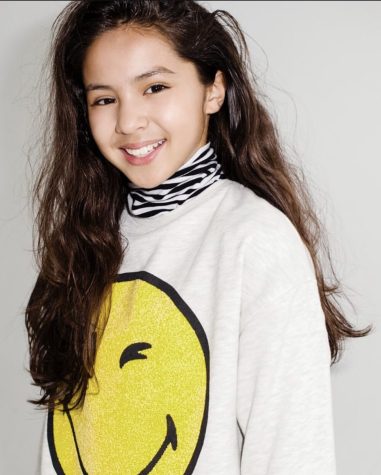
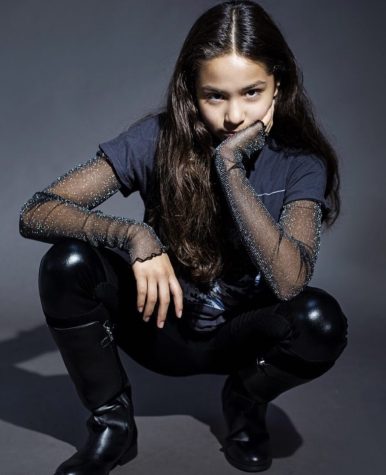
But besides that, when I truly looked into my mind and pulled out the future I envisioned, none of it included being seen by the public in catalogs or films. I never wanted to become famous, so my drive and motivation to spend hours on self-tapes or skip school for auditions became harder and harder to continue.
But who would I be without it? It was hard to say goodbye to something that was not only what I did but who I was. I felt comfortable in this identity and character of who I thought I wanted to be, and I got lost in who I actually wanted to be.
All of this is why I stopped. Since I’ve come to terms with that. I’ve realized that I am so much more than just the girl on the catalog. I also learned that it’s okay to change paths in life because without the courage to leap past my comfort zone, I would have never discovered the things that now give me purpose and fill my identity.
I will forever be grateful for all the opportunities I’ve gained and how much I’ve grown over the years.
I might not have gotten on the Disney channel, which I auditioned for numerous times, or been your next Kidz Bop star, but I am proud of the success I achieved and, even more so, the person that I have shaped to be.
